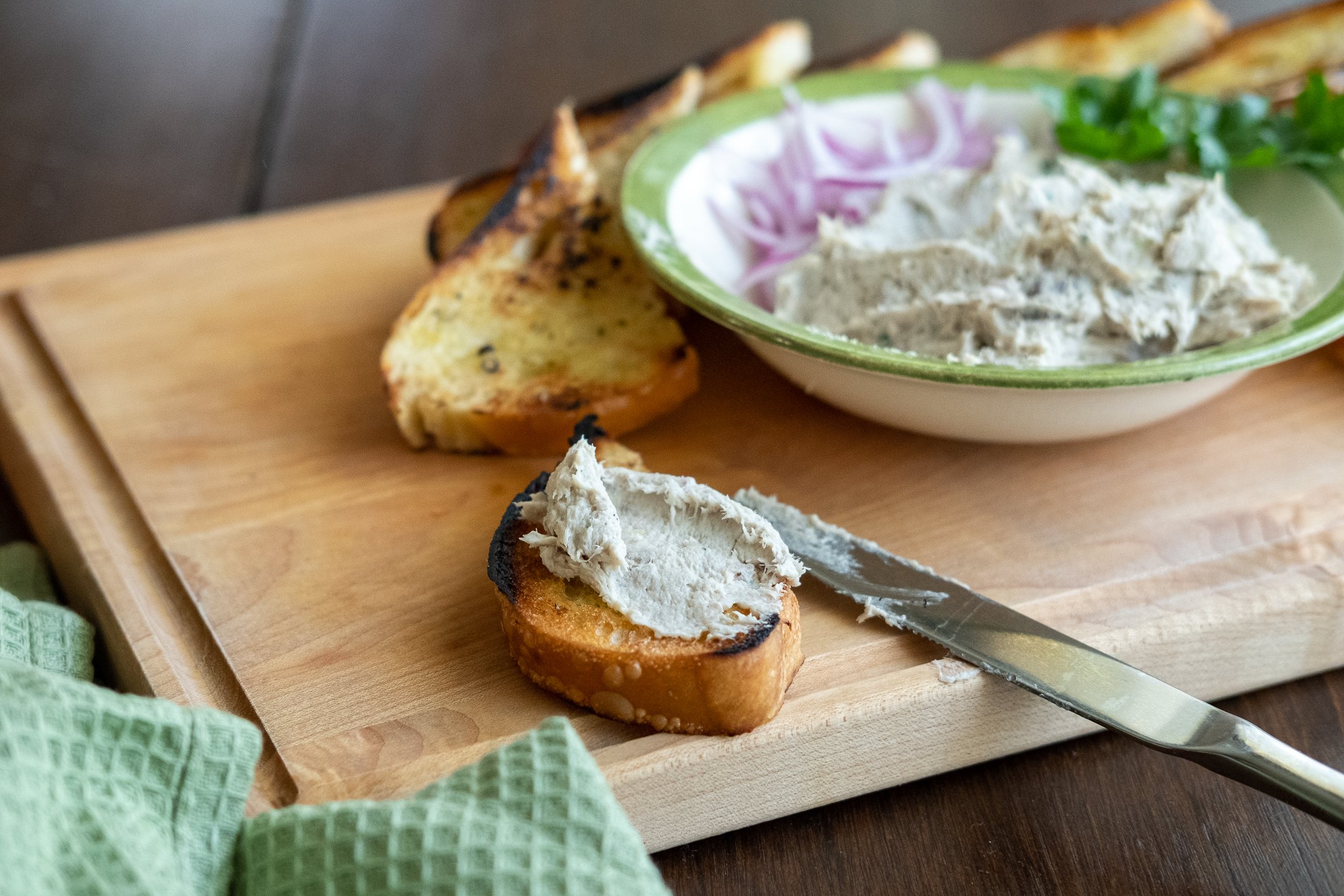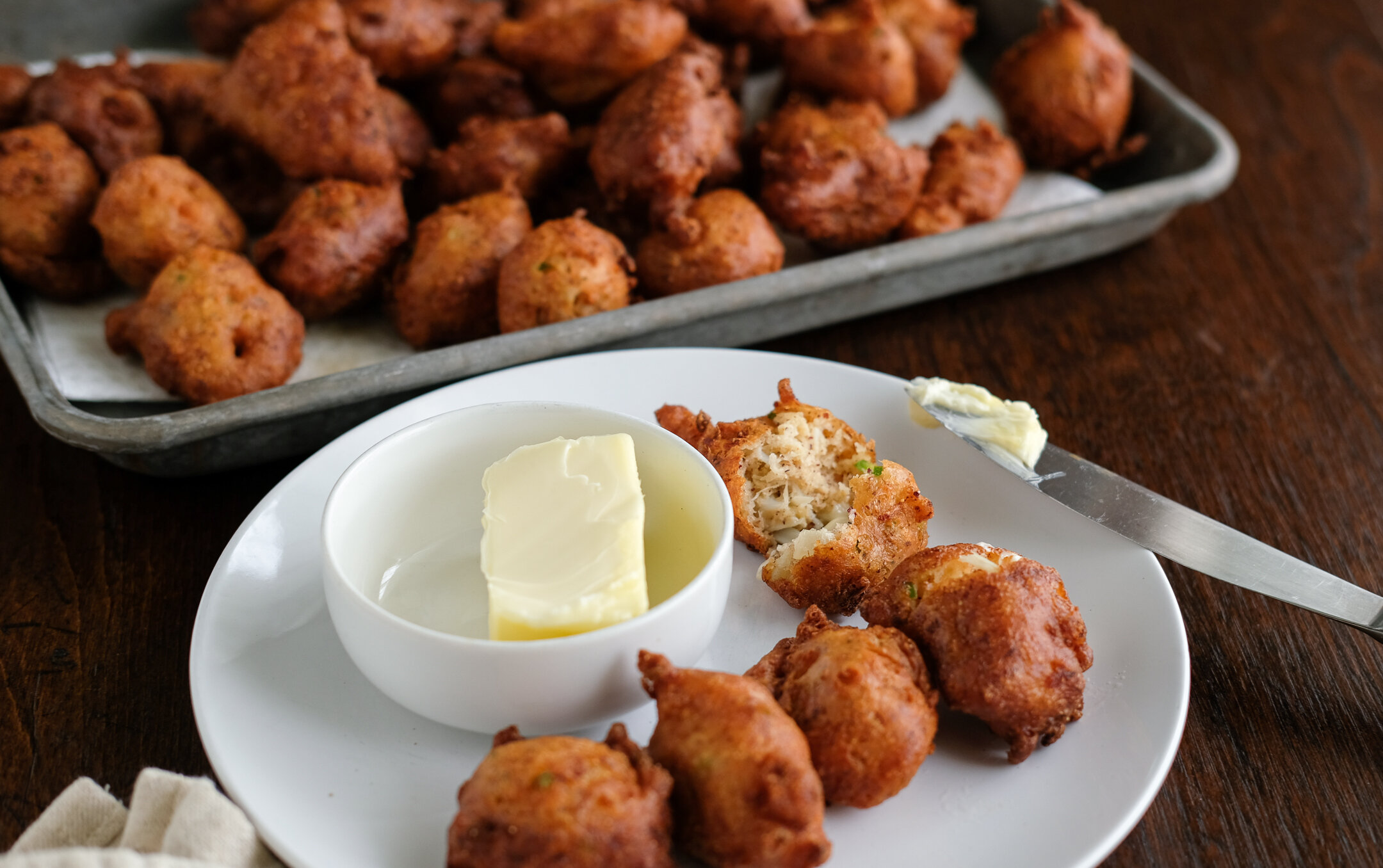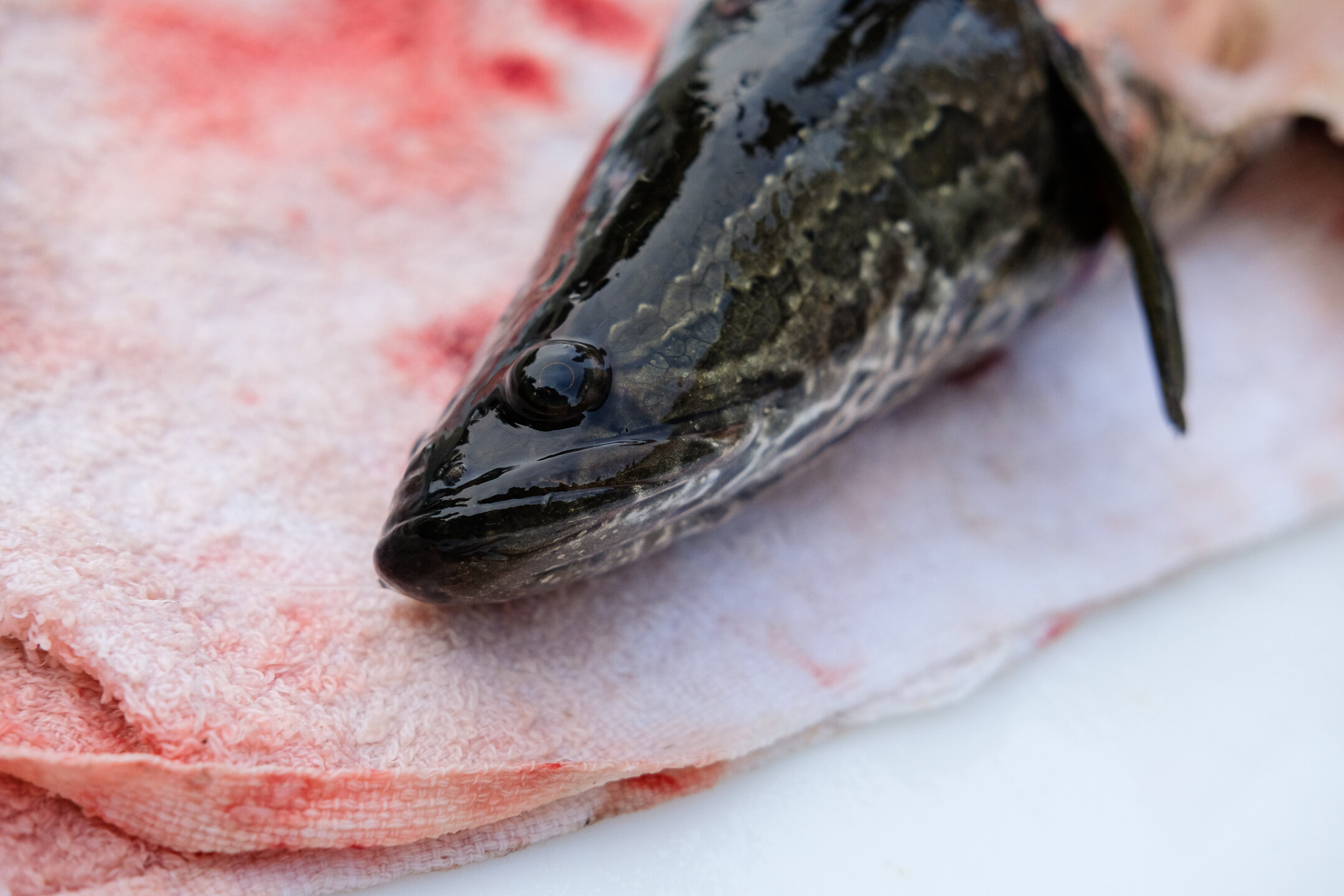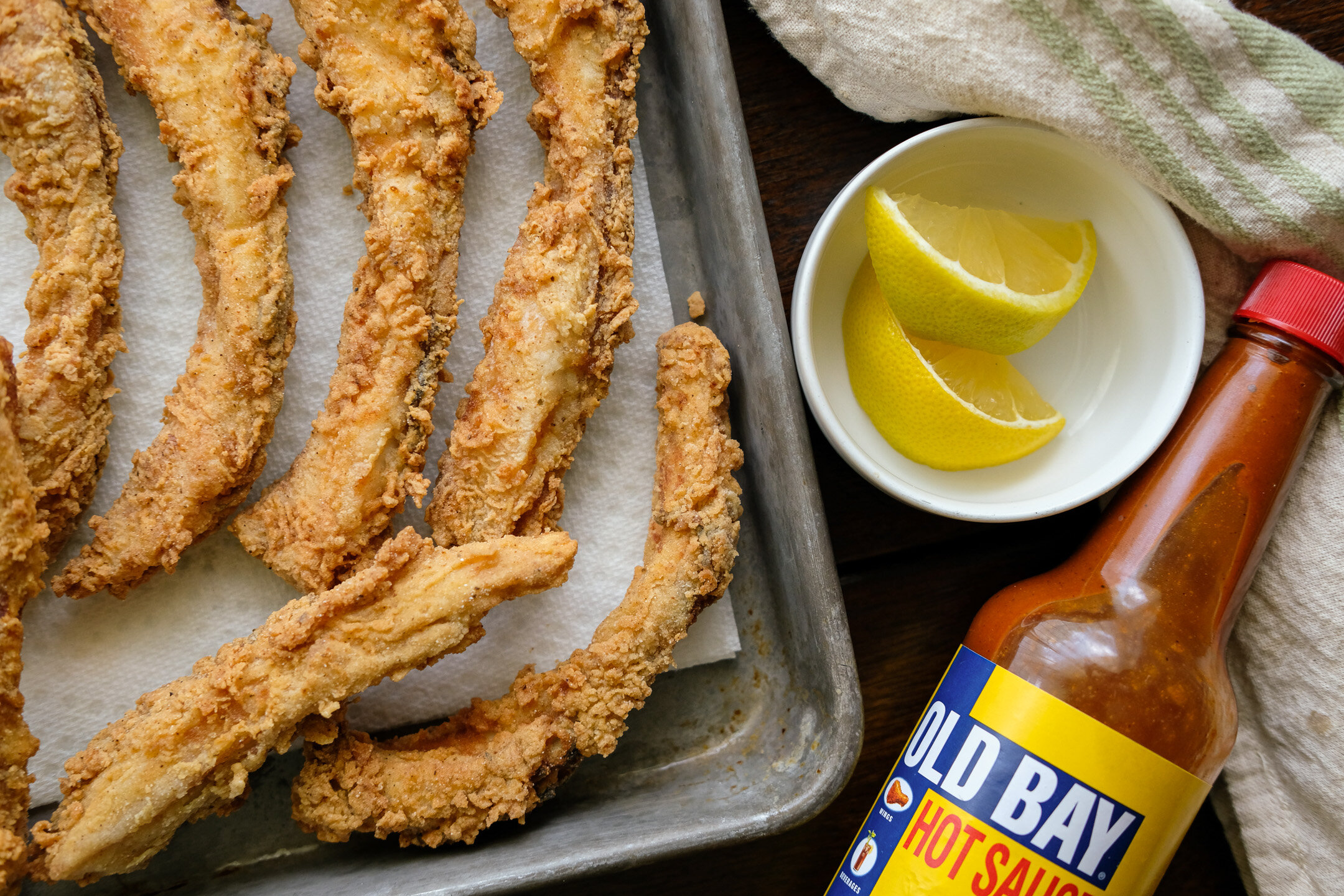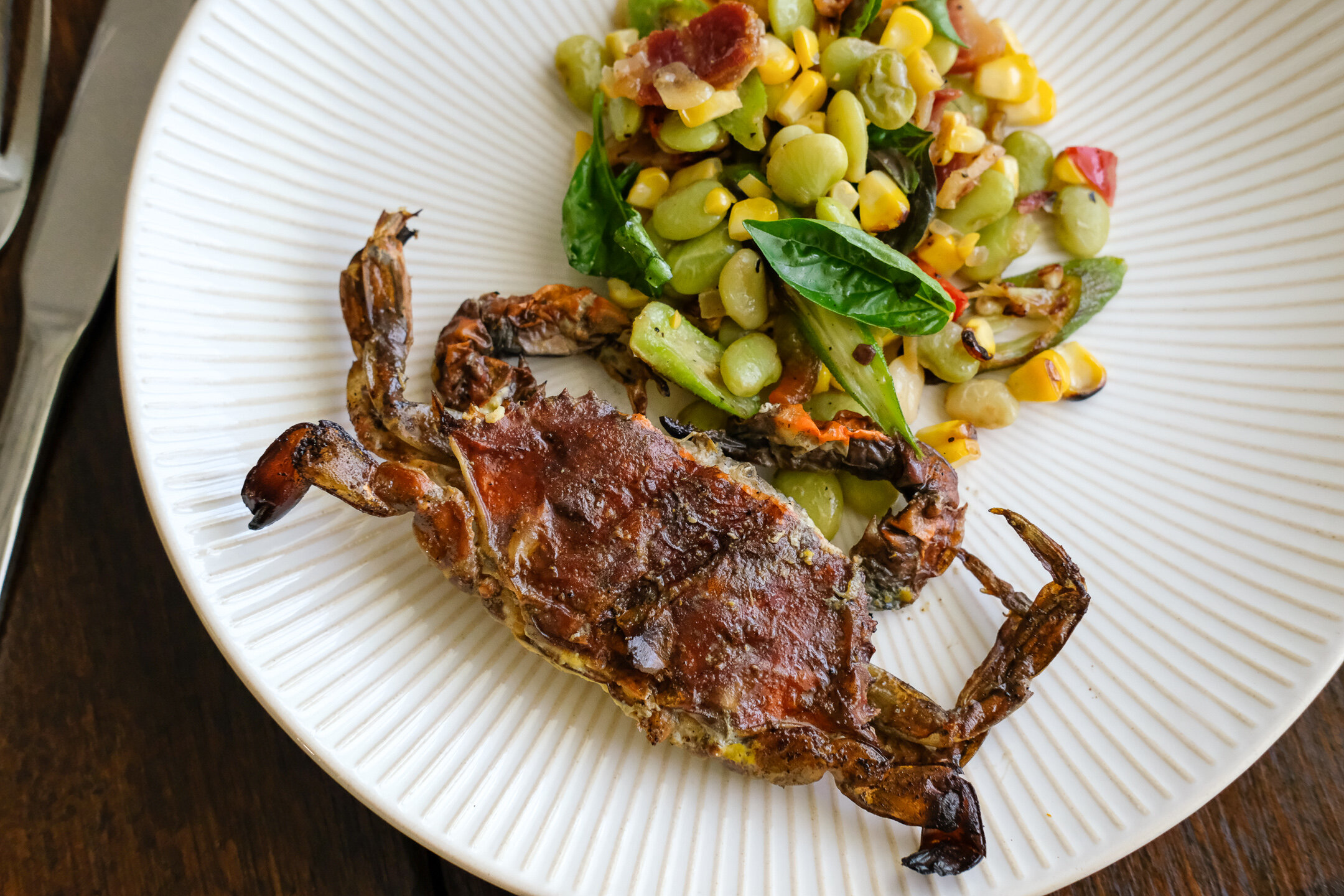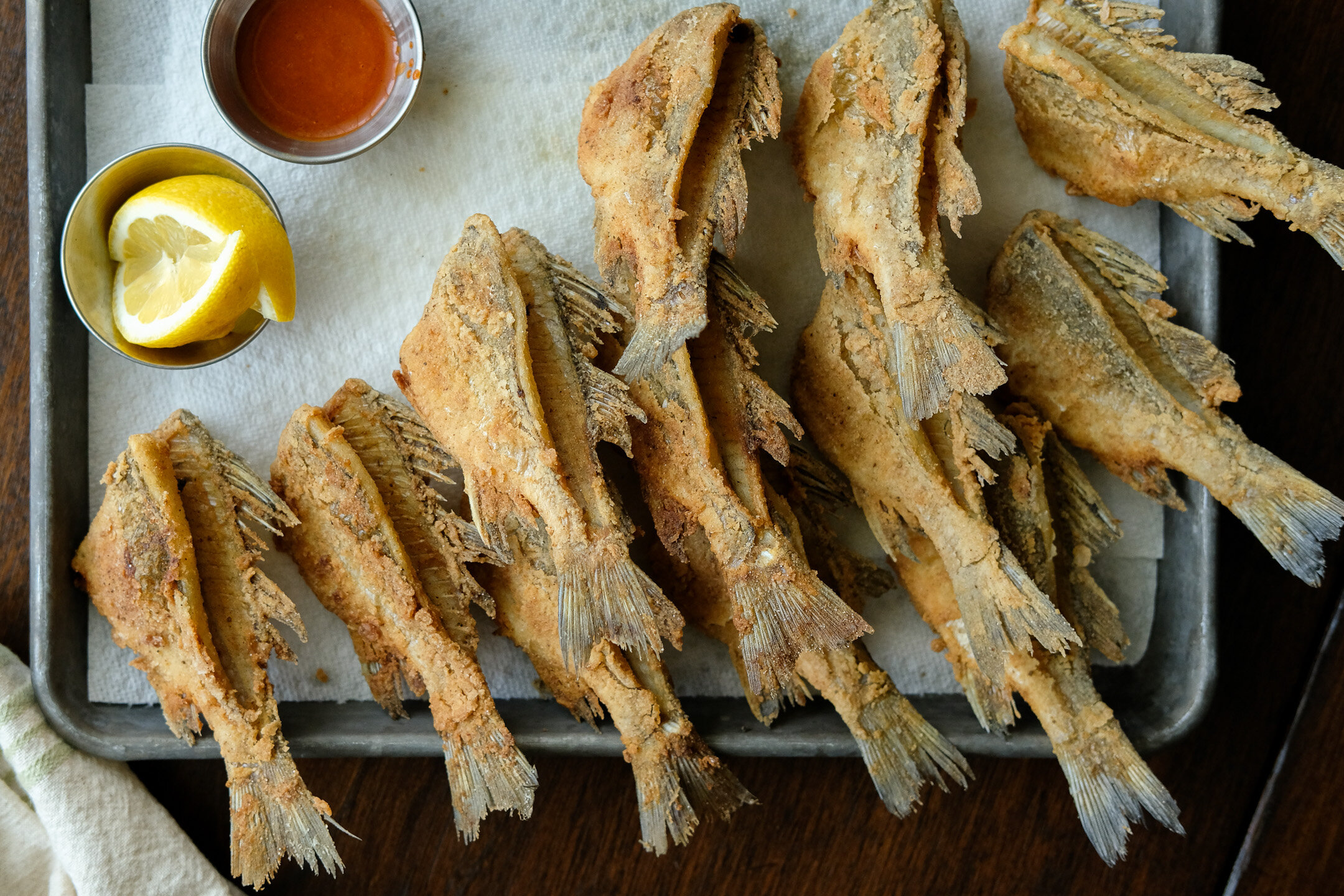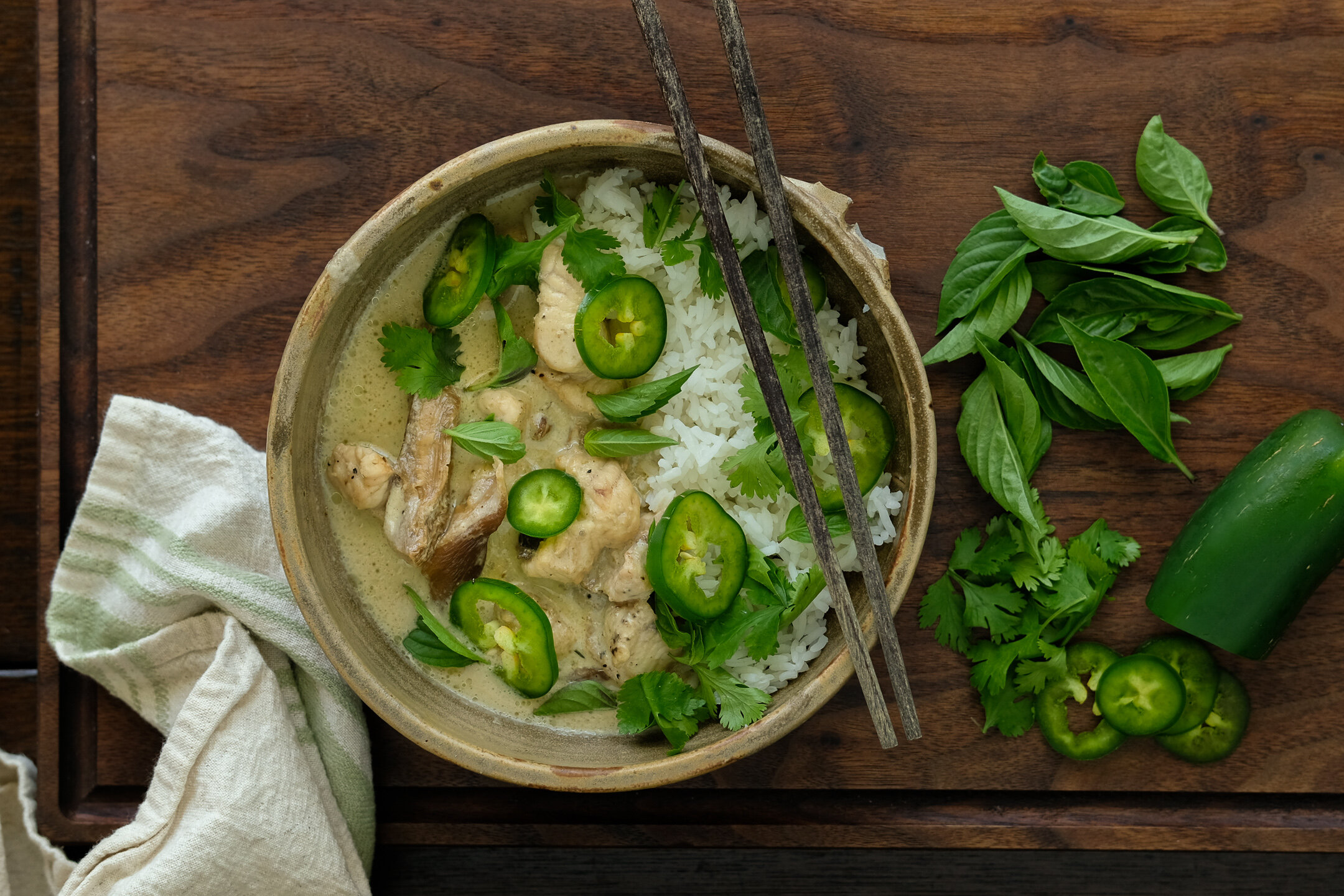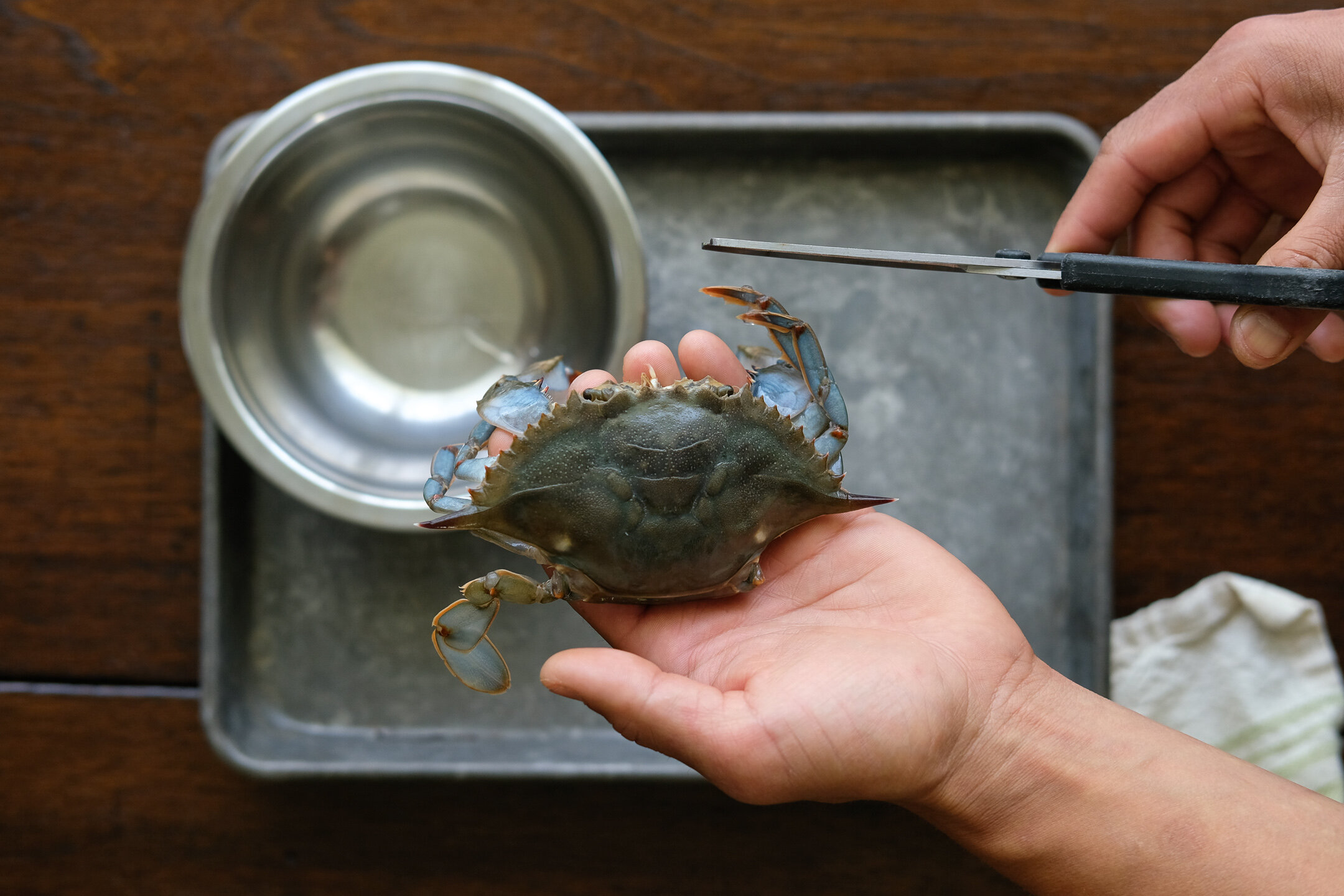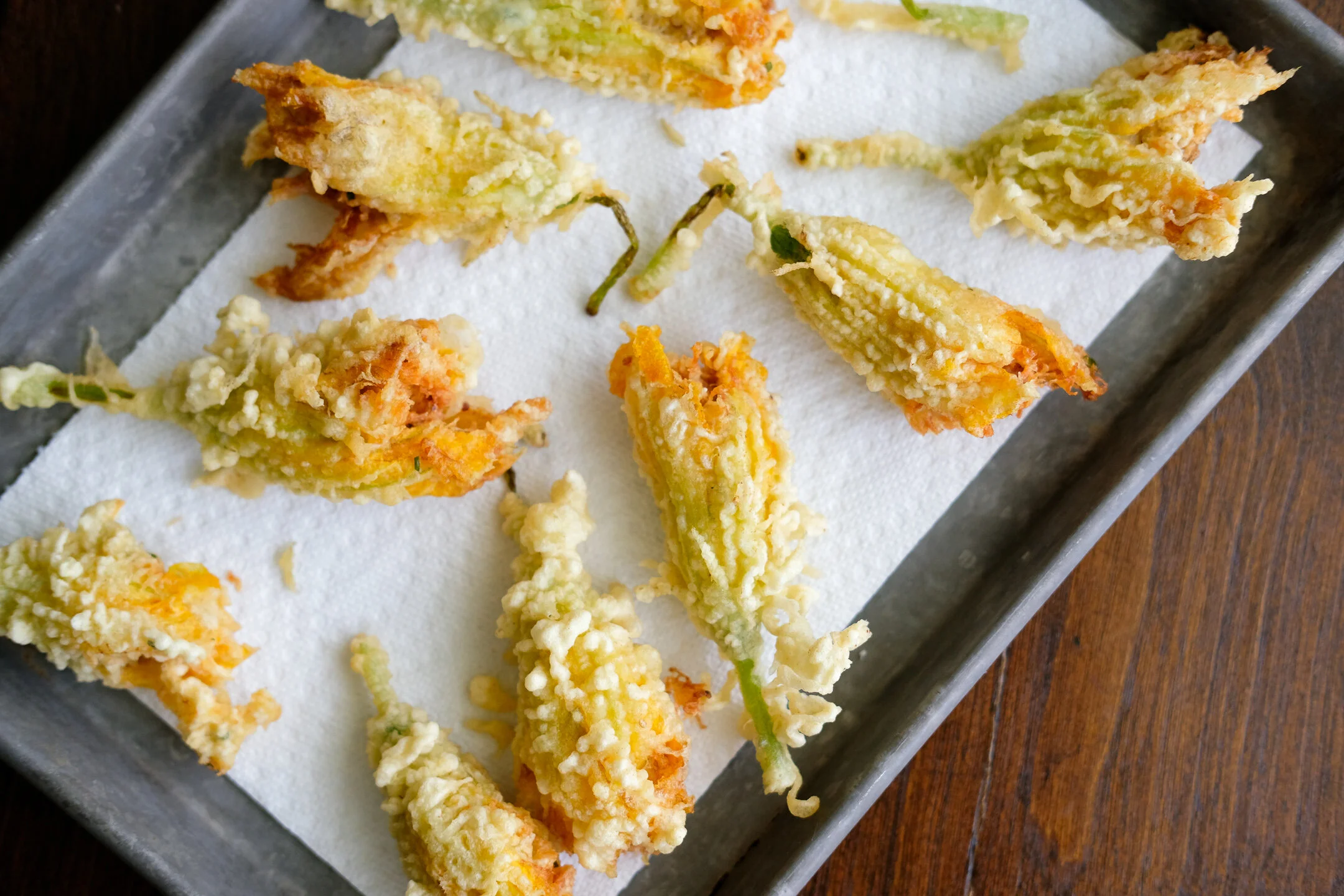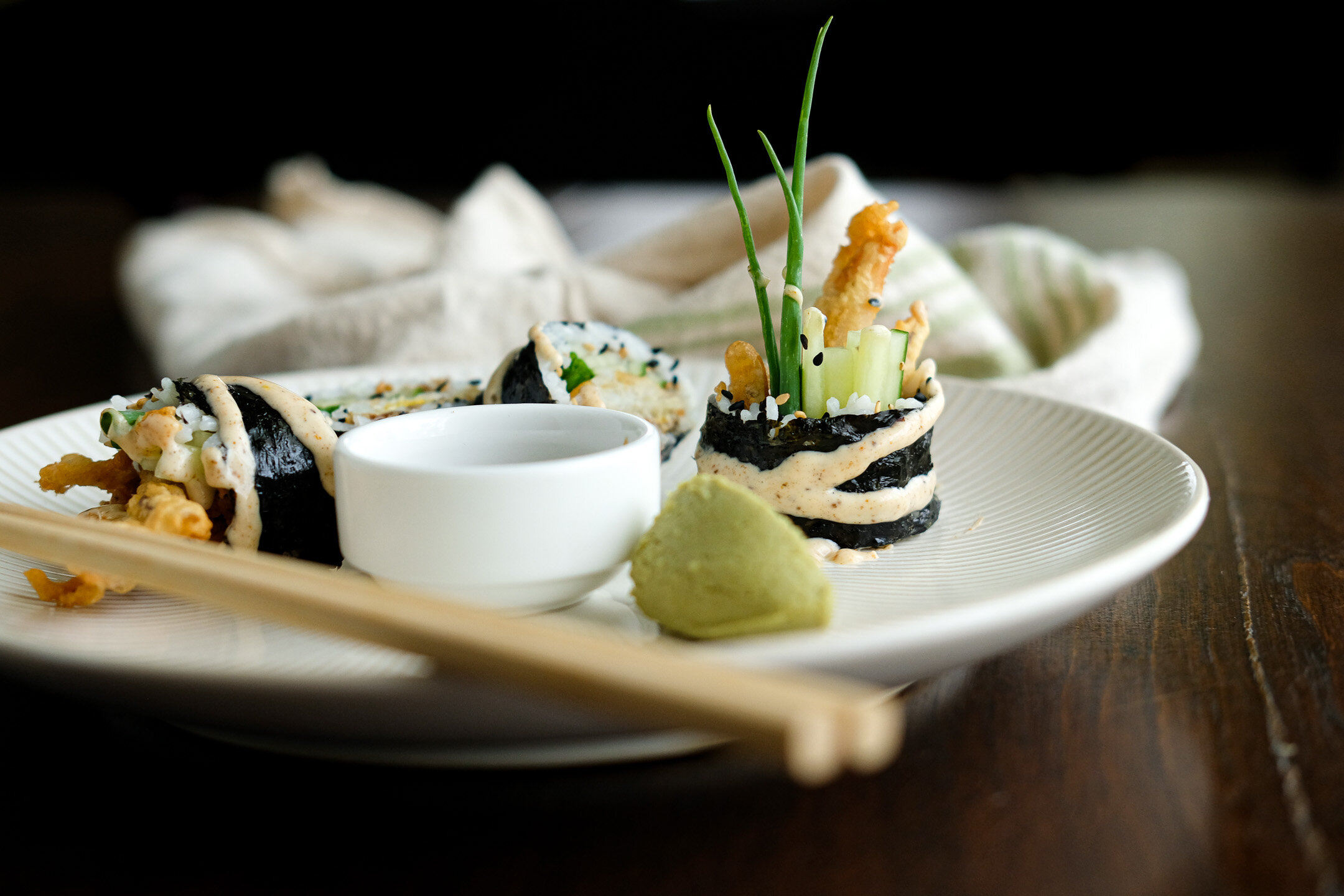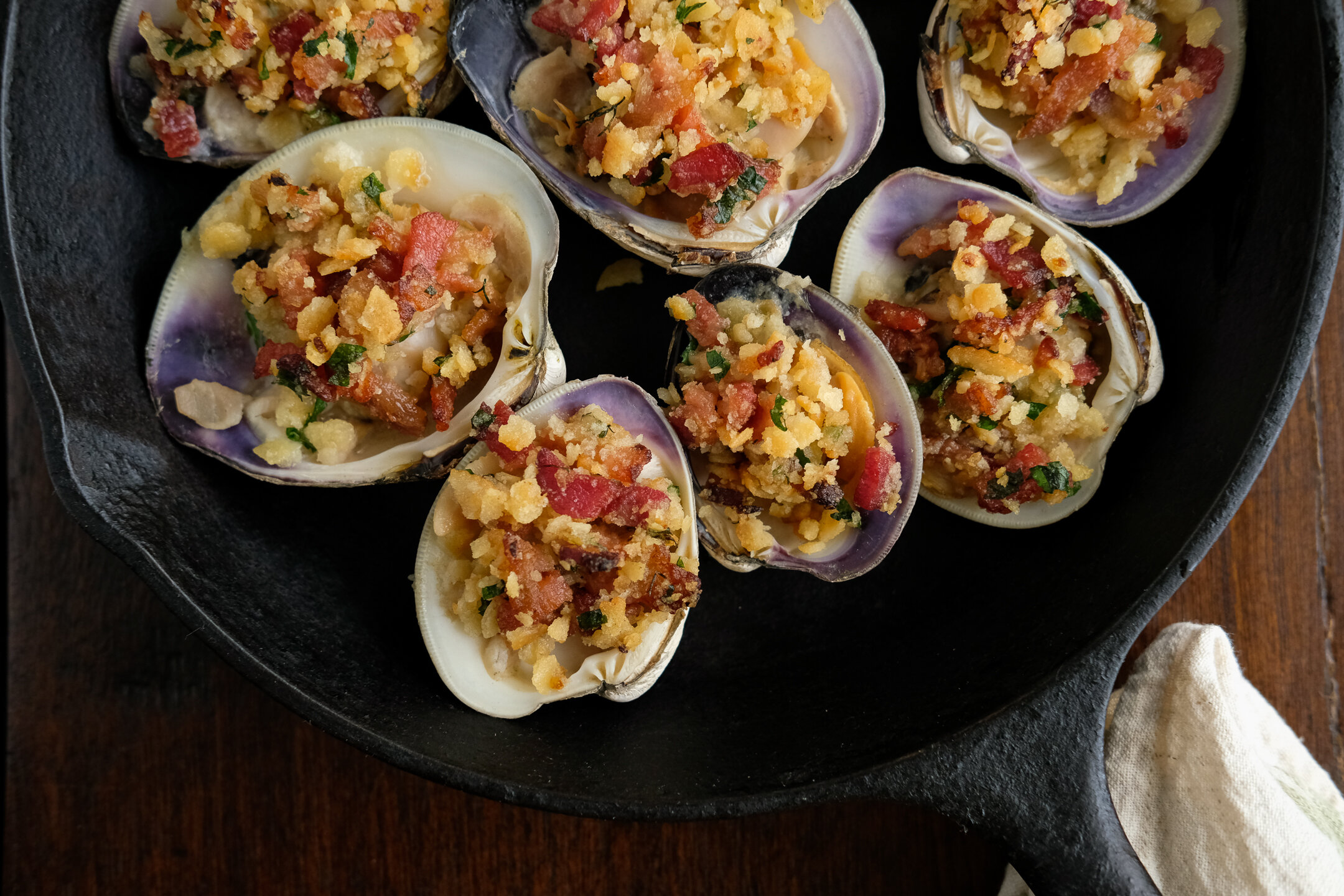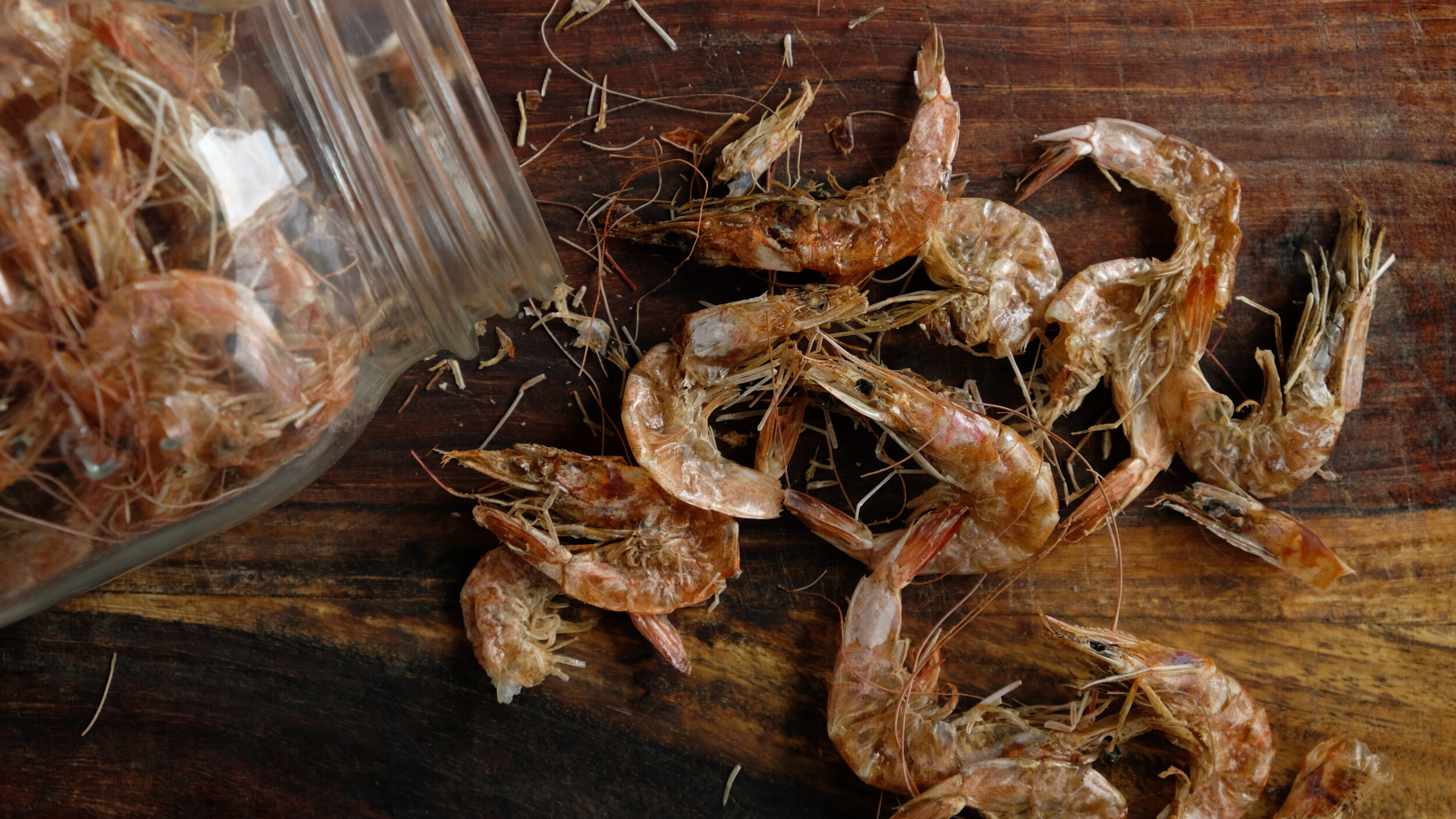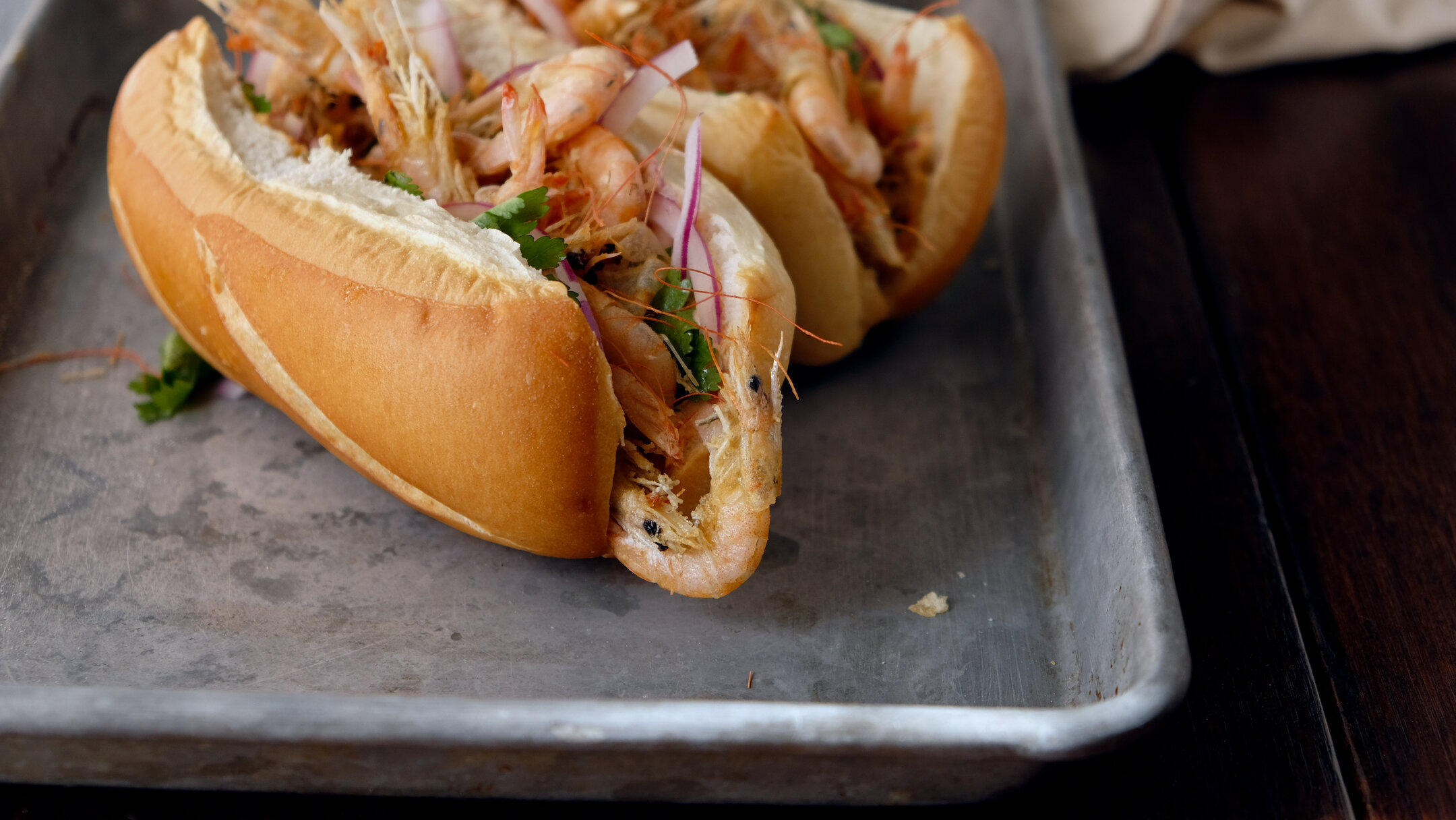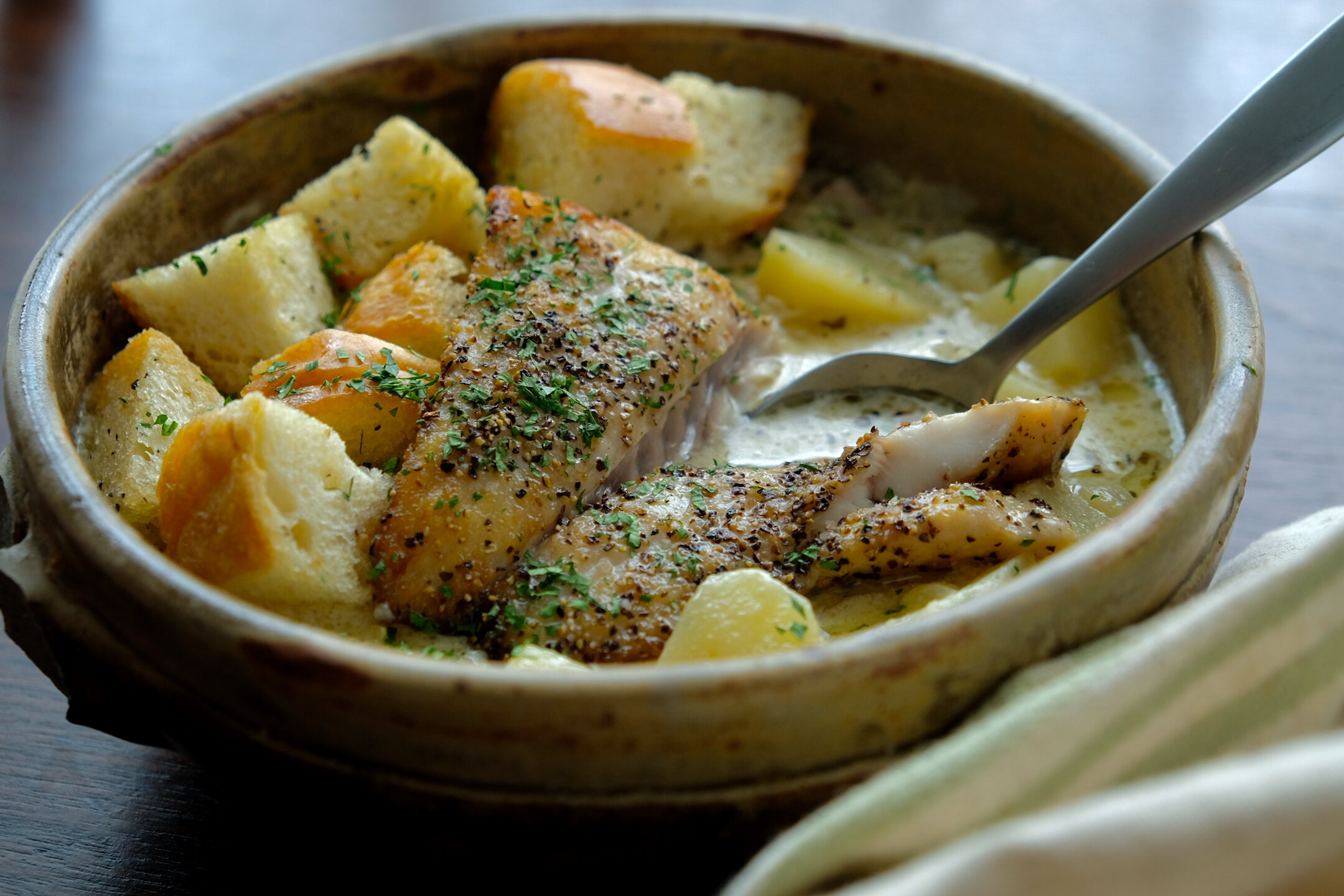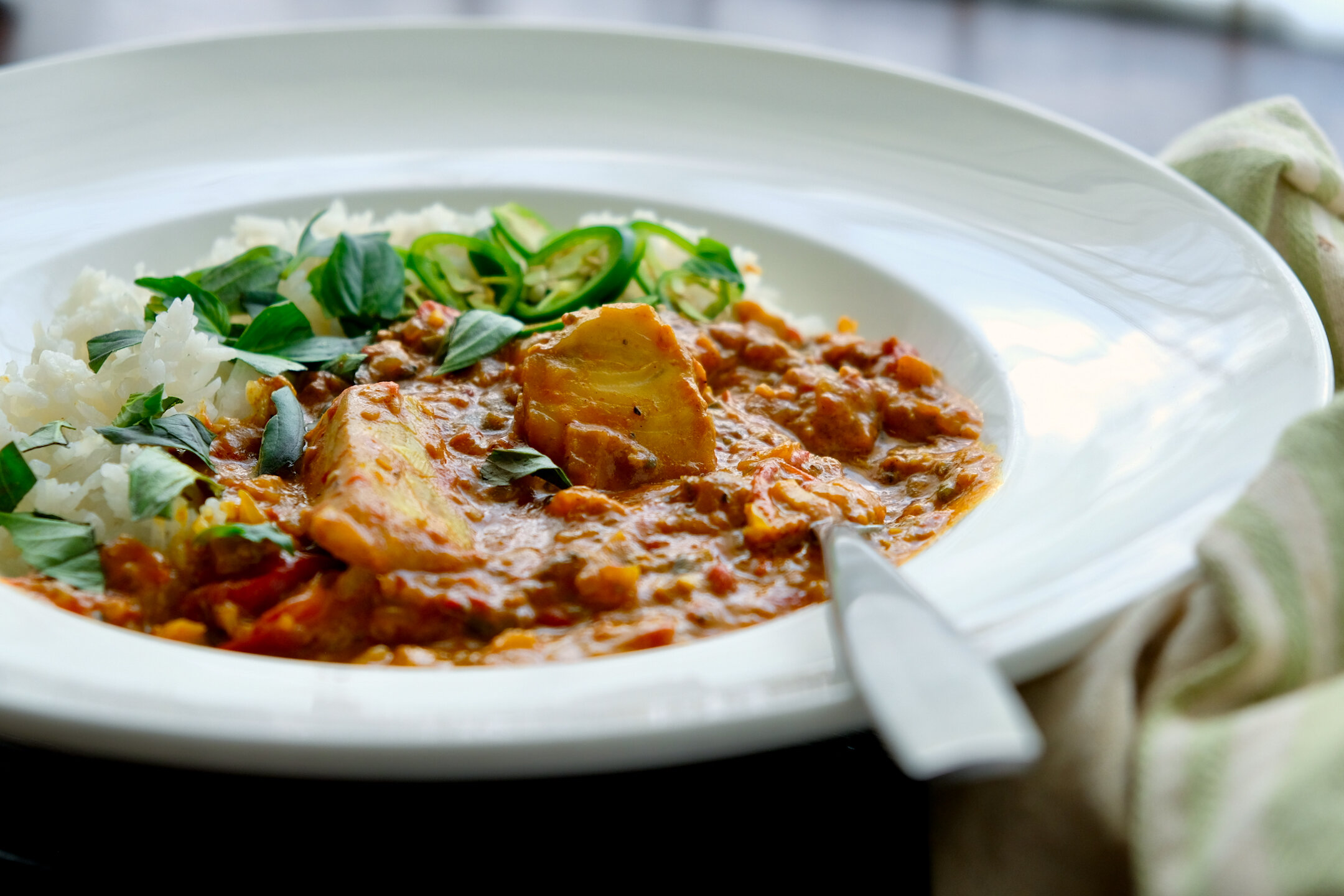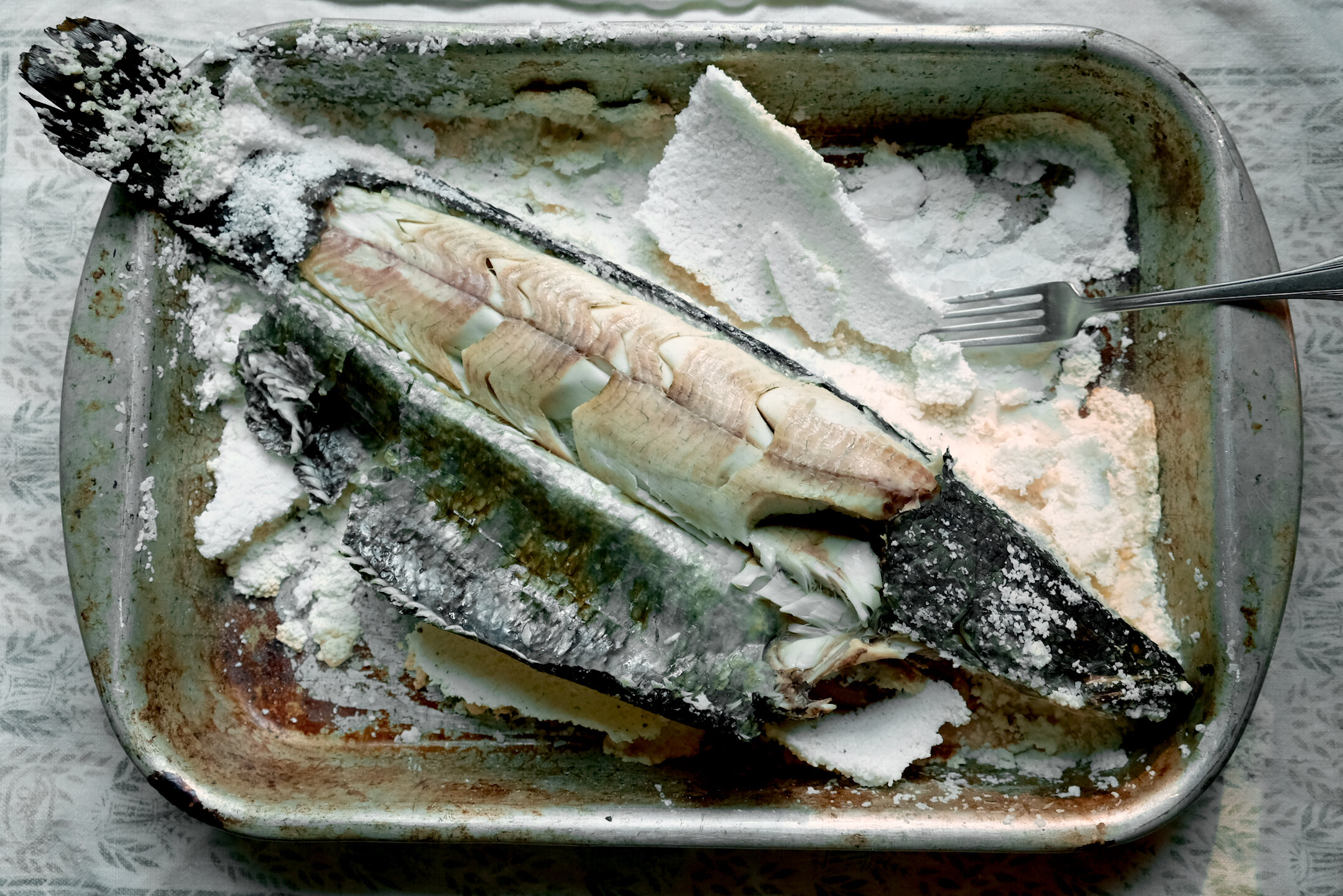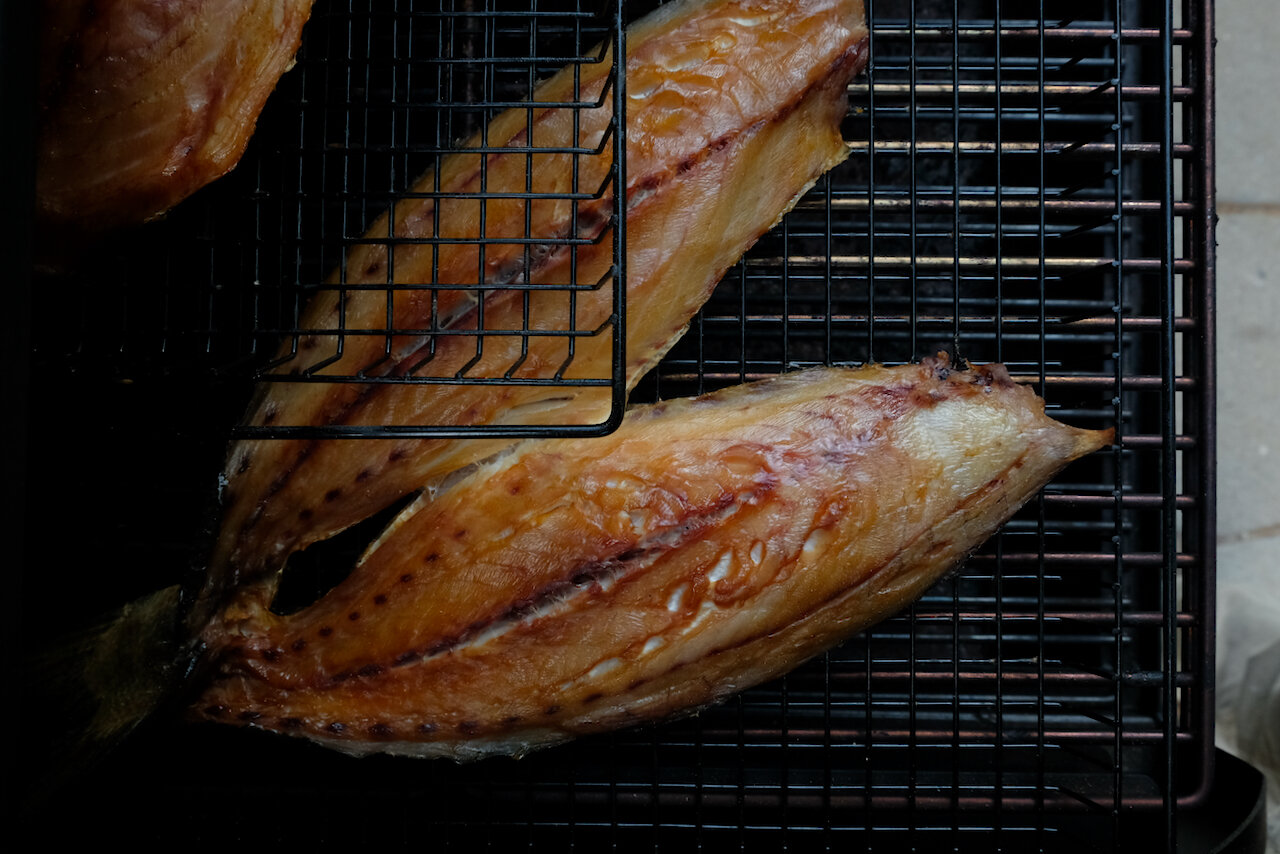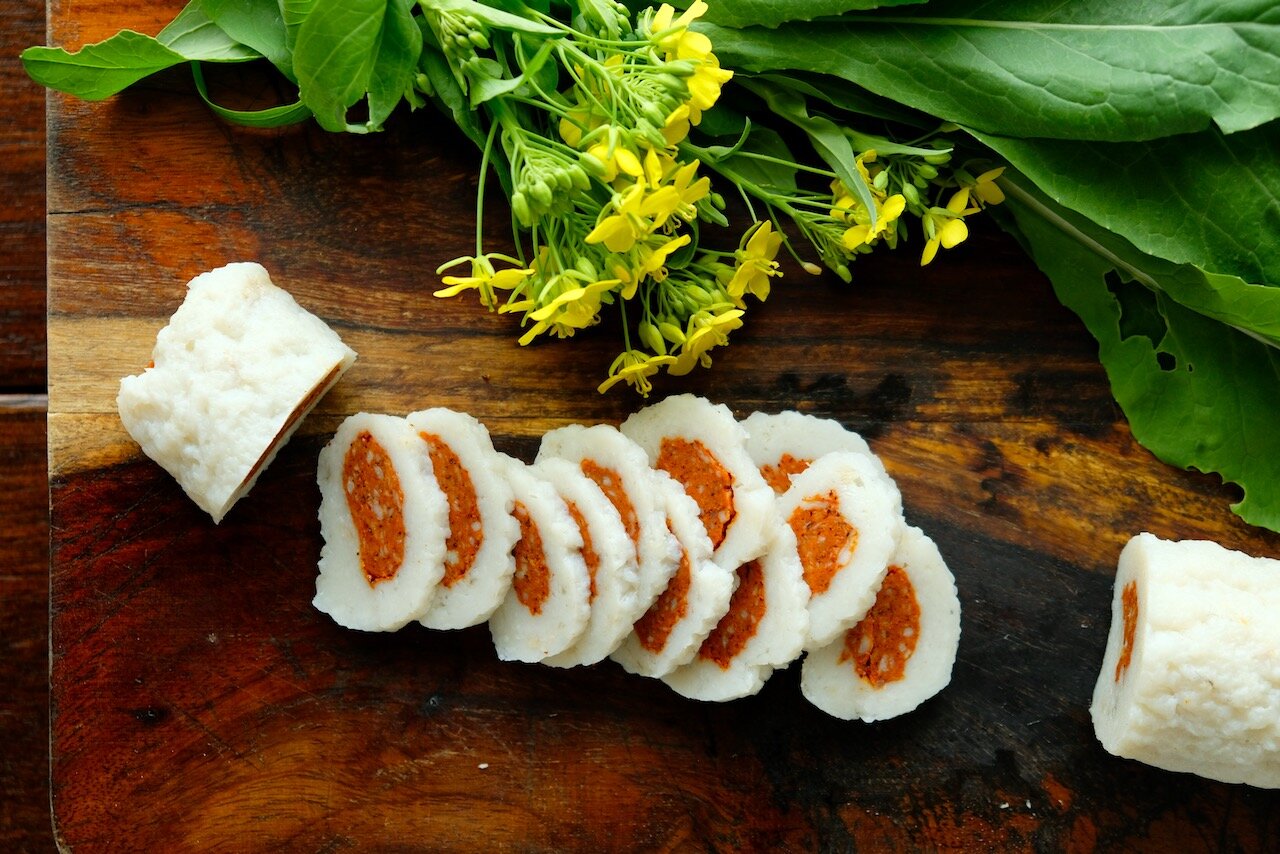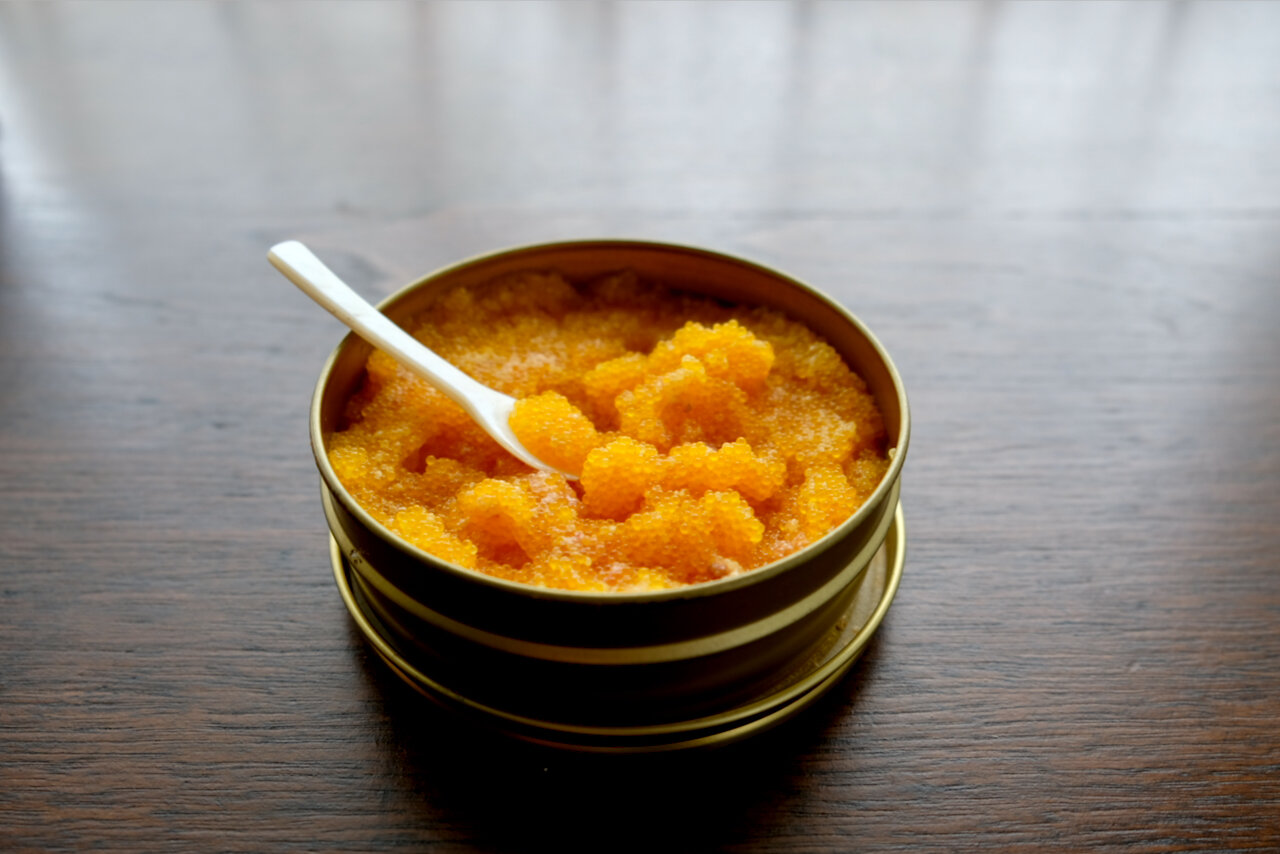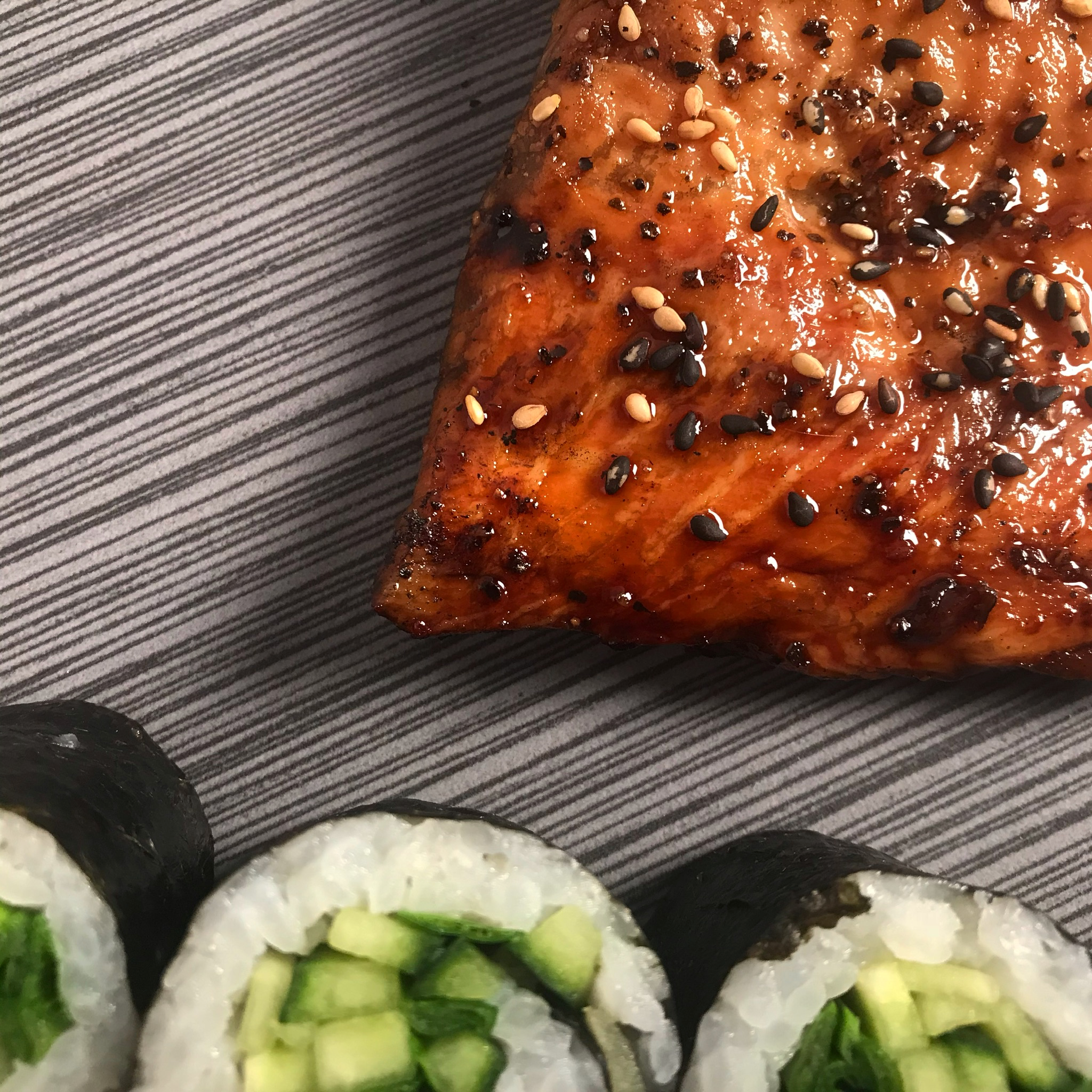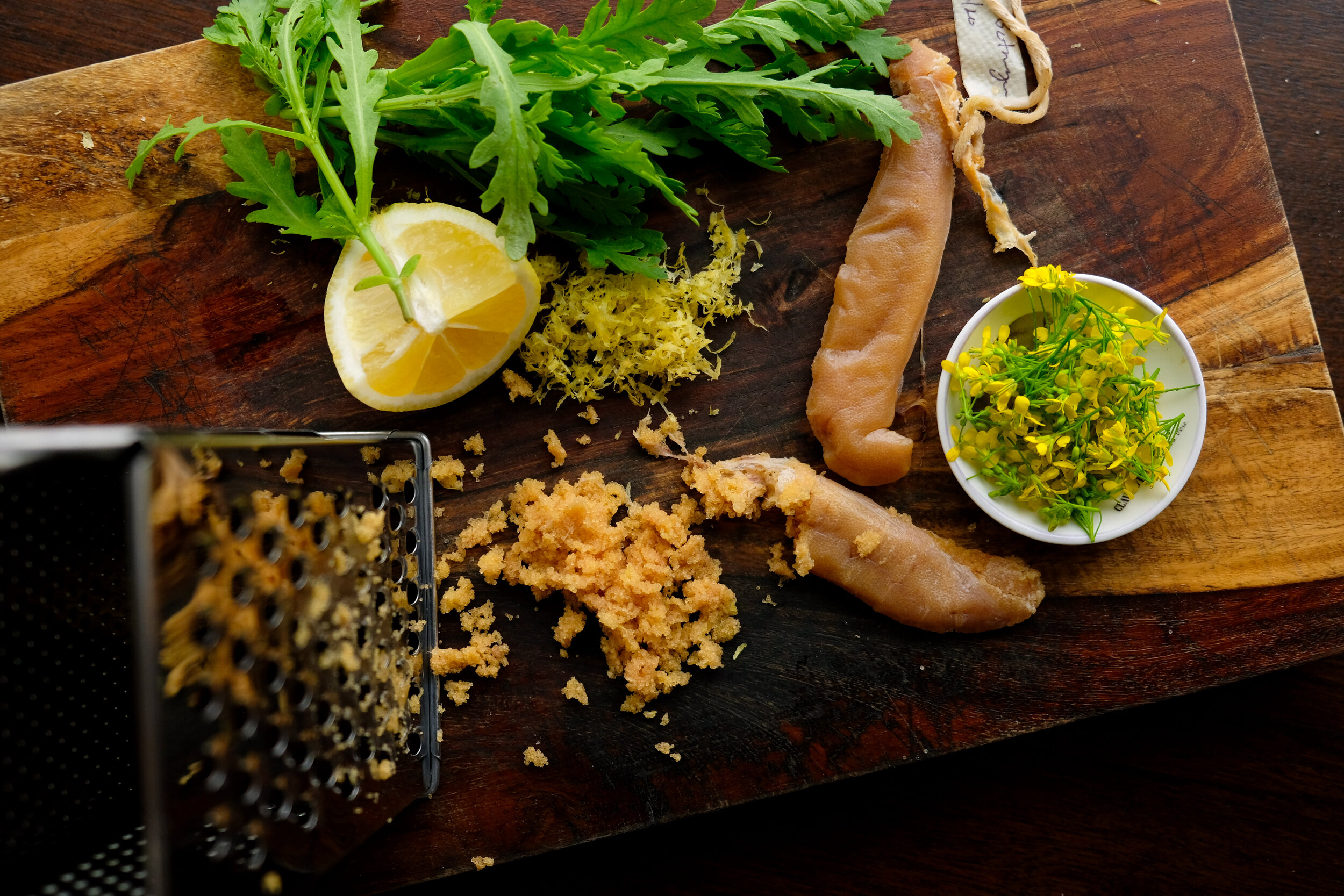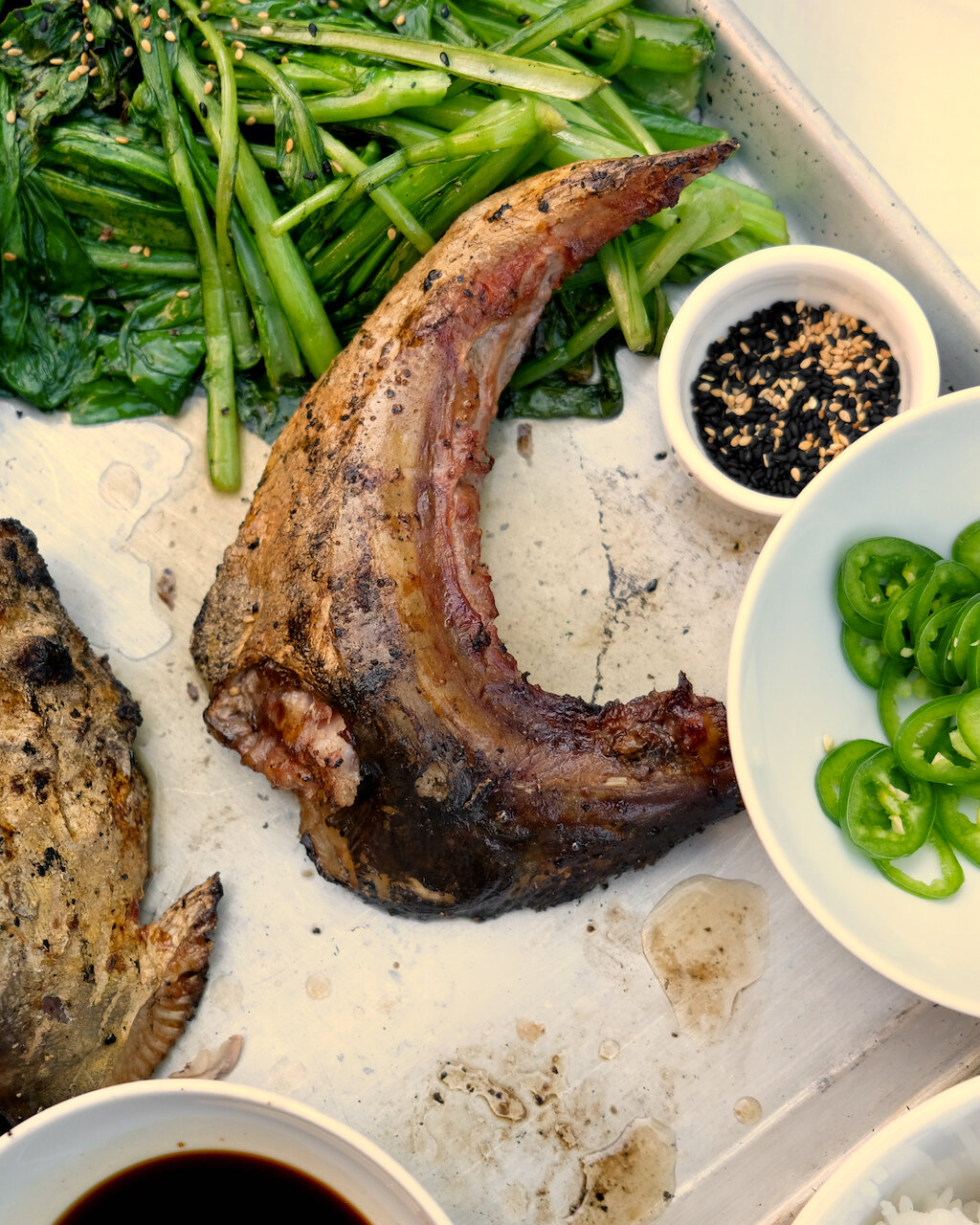Tom Ka Ray

A feeling of trepidation around new, strange, or foreign food is a strong evolutionary trait. It’s one of the reasons why we’re here now. But it’s also responsible for centuries of hearsay and food bias. We like trying new foods, even if those foods scare us a little bit. I don’t know how many times I've been asked “Can you eat that?” The answer is almost always “yes you can.”
Cownose ray is one of those foods that I know is edible, but there is very little credible information on what the cownose ray is like as table fare. A quick google search doesn’t yield much- most forum and blog posts lump rays and skates together, and for those that make the distinction, many say they thought it was “fine, fried up” or “not fit for the cat”. Our cookbooks, too, treat rays as an afterthought- you’ll see a recipe for skate, and then, in a little blurb before the recipe, there will be a note about how skate and ray fillets can pass for scallops or crabmeat. Anyone who has seen the filet of a cownose ray next to a skate can immediately tell that there’s a huge difference between the two. Where skate resembles scallop in color and texture, cownose ray is denser, darker, and bloodier.
Recently, there was a short-lived campaign to market cownose ray as ‘Chesapeake Ray’ in some seafood markets, fueled mostly by bad science. Maybe the market wasn't ready for a fish that cooked up grayish in color, has a chicken-like texture, and doesn't look like a fish.
This recent trip to the shore we were land locked, with winds too high and from the wrong direction for us to comfortably take our tiny boat out into the bay. We instead fished from a dilapidated dock with our friend Cameron. The tide was moving into the creek mouth and with it, the skates and rays. As the sun began to sink, the surface of the still water was sliced by the wingtips of the rays as they cruised the shallows. It was a skate and ray rush hour. Big female rays, followed by three or four smaller males, swooped in from the deeper water of the bay to feed and breed. Innumerable skates cruised lower in the water column, smaller and lighter in color, almost invisible against the bottom. We joked about fashioning up a harpoon, flipped small cut baits to the fish we could see, and in quick order filled a cooler with skates. We switched to crab for bait, and Rachel hooked into a cownose ray, which had its way with our light tackle setup. After 30 minutes of fighting to keep the ray from wrapping up in the pilings, we had a bent landing net and a 35 pound cownose ray on the dock. The ray wouldn’t fit in the cooler whole, so we cut the wings off and used the remaining parts of the fish to bait the crab pots.
The ray wing comes apart much like the skate wings, just a lot thicker, and with a much deeper color. The meat is not nearly as flaky and delicate as the skate, but rather meatier and dare I say, chicken like. A gentle braise relaxes the tougher parts and the meat takes on a superb, clean flavor. It’s somewhere between swordfish and veal.
Tom Ka Ray
This light Thai coconut and lime soup is usually done with chicken or shrimp. We swap the chicken for ray and see no reason to go back.
Prep time: 30 minutes
Serves: 4
Ingredients:
1” ginger, peeled, cut lengthwise
2 4” stalks of lemongrass, smashed with backside of heavy knife
Zest of one lime
Juice of one lime
6 cups stock (fish or light bird stock)
1-1.5 lb ray wing fillets, cut into ¾-1” cubes
1 cup cooked mushrooms
1 can coconut milk
1.5 cups thinly sliced bamboo shoots (optional)
2 tbsp fish sauce
1 tsp sugar
Chili oil, cilantro and/or thai basil to garnish (optional)
Method:
Combine ginger, zest, lime juice, lemongrass and stock in medium stock pot. Bring to a simmer, add in cubed ray. Cover and adjust heat to a soft simmer until ray is tender, about 40 minutes. Using tongs, remove ginger and lemongrass stalks. Add in mushrooms, coconut milk, bamboo, fish sauce and sugar. Bring to a simmer. Taste and adjust seasoning as needed. Top with chili oil and herbs.








